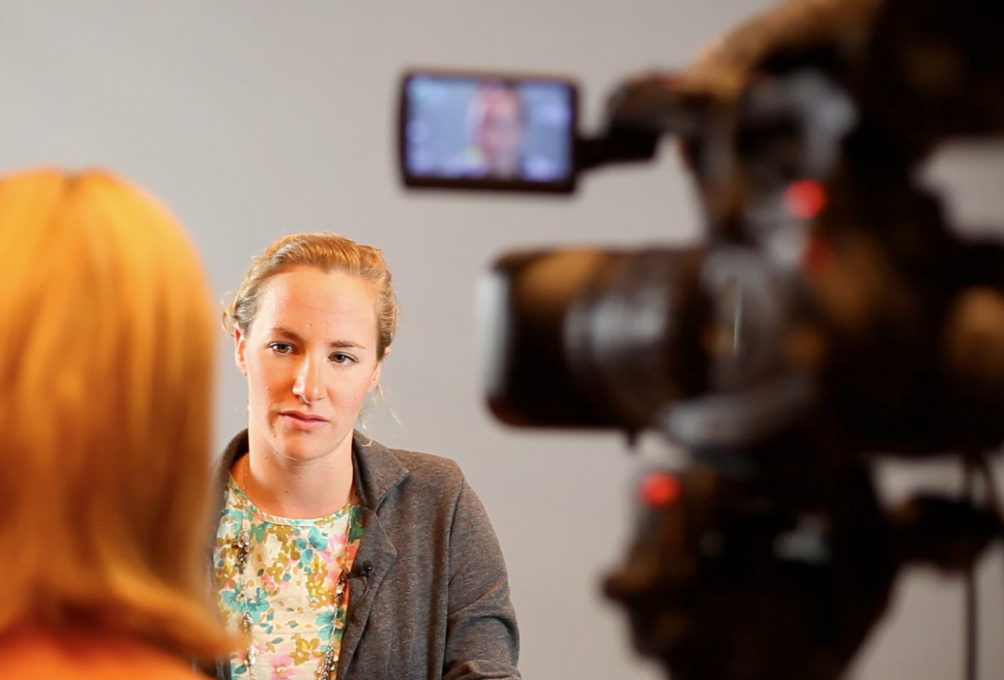
How to get featured in the media
Bit Famous works with businesses and organisations to help them communicate with confidence.
By Penny Haslam
MD and Founder - Bit Famous

How to get featured in the media. I'm often asked, how to get featured on TV or radio as a guest or interviewee. Even people who run PR agencies or work in marketing departments wonder, "How can I get my client or boss featured on TV or radio?"
It may seem mysterious, but my explanation comes from my experience in journalism on TV and Radio. I started my career as a researcher, a junior producer, and a producer booking guests for BBC radio.
Later I was a presenter on national TV and Radio, so I understand how the system works. It's surprisingly straightforward, yet many people miss the opportunity.
Want to be featured in the media? Don't be a one-hit-wonder.
If you aspire to feature on TV or radio, it's important to understand the difference between being a one-hit-wonder and being a news contributor who is featured regularly.
While it's great to issue a press release about your product launch, latest business innovation, or research. With luck, you'll only feature in the news momentarily.
Marvellous Media Training aims to cultivate individuals who share insights, opinions, and expertise regularly in the media. Based on our broadcasting experience, this is where you can establish long-term, fruitful relationships with journalists that offer enduring value.
Feature in the media as a go-to expert
Start by considering yourself as an expert, because broadcasters and print journalists need people to comment on stories. They're not in the news, but they appear on air discussing it. Go-to experts who they can call upon quickly and return to, time and again.
So what is an expert? It's not just someone in a white lab coat. An expert is really just someone with experience, knowledge and passion.
Ask yourself, what lights me up? What do I want to be known for? What areas of expertise can I claim to help me stand out? This will help you become a go-to person who can help journalists with a subject, issue or area of expertise.
Demonstrate your expertise to get featured in the media
Journalists find contributors via social media, Twitter (X) in particular. Use social media to demonstrate and flex your expertise by creating and sharing your knowledge, thought leadership, opinions and comments. Read our blog Got an opinion? Share it. Using self-shot mobile videos, blogs and podcasts will reassure journalists that you can perform on air.
Getting featured in the media - choose your target TV and radio programmes
Once you've identified your expertise, start to consider the types of programmes where people like you turn up. Make a list of target shows and make an effort to tune in and be aware of the stories they feature. I find it surprising how many people overlook this.
They casually listen to classic hits radio or their favourite 80s station, when they should be conducting research to identify the programmes most likely to feature them.
How to get in contact with journalists
Once you have identified your key topics and target programmes, you can make contact. Email the producers of your targeted shows. (Get email addresses by simply calling the station's switchboard and asking to speak to the planning desk for the respective programme.)
Twitter (X) is also a platform where journalists find their contacts. If you're familiar with your target programme, such as the drive time slot on a local radio show, you could potentially offer yourself for that segment.
Reach out to them via Twitter, using their handle and hashtagging the programme. Journalists often use hashtags to find contributors using the hashtag #JournoRequest.
How do you approach a journalist?
When you get in touch offering yourself as a contributor, don't write a lengthy press release, just drop them a quick message outlining your expertise, opinion or comment you'd like to make.
Demonstrate that you are a viewer or listener of their show by briefly referring to recent (relevant) items you may have seen, heard, and could have commented on.
Make it clear that you'd be happy to talk about current, or future items. Be helpful and suggest details of the types of stories you can talk about.
Suggest they keep your contact details, don't forget to add a mobile phone number.
If there is a story in the media you feel would benefit from your expert opinion, contact that journalist immediately. The news agenda moves fast.
Get featured in the media - slow and steady wins the race
If you contact a journalist and they don't reply to you don't be disheartened, you will be on their radar. The news agenda may have moved on, or they might not need your particular viewpoint. You may not achieve immediate success, though I sincerely hope you do.
It's essential to persist over time, think long-term and stay informed about the news, identifying topics you could provide insights on, not just because you fancy appearing on TV, but because your input could be valuable.
Case study - Featured in the media - My Aunt Daphne!
My Auntie Daphne, a remarkable head teacher, took action when she saw an article criticising parents who showed up at the school playground in their pyjamas, labelling them as lazy. This narrative suggested that parents couldn't even bother to dress properly.
Daphne, feeling strongly about this, tweeted her thoughts, and reached out to her local newspaper and radio station, expressing her desire to share her insights. As it turned out, she got a slot that very afternoon and had an enjoyable discussion with the presenter, dispelling the myth that was propagated by the tabloid press.
Her contribution was deemed valuable, so her name and phone number were added to their database. A few weeks later, when a more serious news item arose, they called upon her for her input.
In summary
Hopefully, these suggestions have given you some ideas on how to make your debut on TV and radio. In summary:
- Identify your pet subjects.
- Decide what expertise you can offer.
- Pinpoint your target programmes, which could range from a local radio breakfast show to a specialist interest programme on TV or BBC Radio Four.
- Familiarise yourself with these programmes through careful listening and understanding.
- Take the initiative to make contact, either via email to the programme team or using Twitter to get under their nose.
Before long, you'll receive an invitation to speak on air. If you make a positive impression, chances are you'll be invited back. This approach is effective, but it requires time and effort to understand the broadcast landscape and how you can contribute meaningfully.
The benefits of appearing on TV and radio are substantial it'll allows you to establish your credibility and get recognition from clients and colleagues.
Once you get started as a TV and radio expert, you could potentially be asked to appear for many years to come. It's a fantastic opportunity to make yourself a little bit famous, and it doesn't have to be left to chance - you can take the initiative and make it happen.

